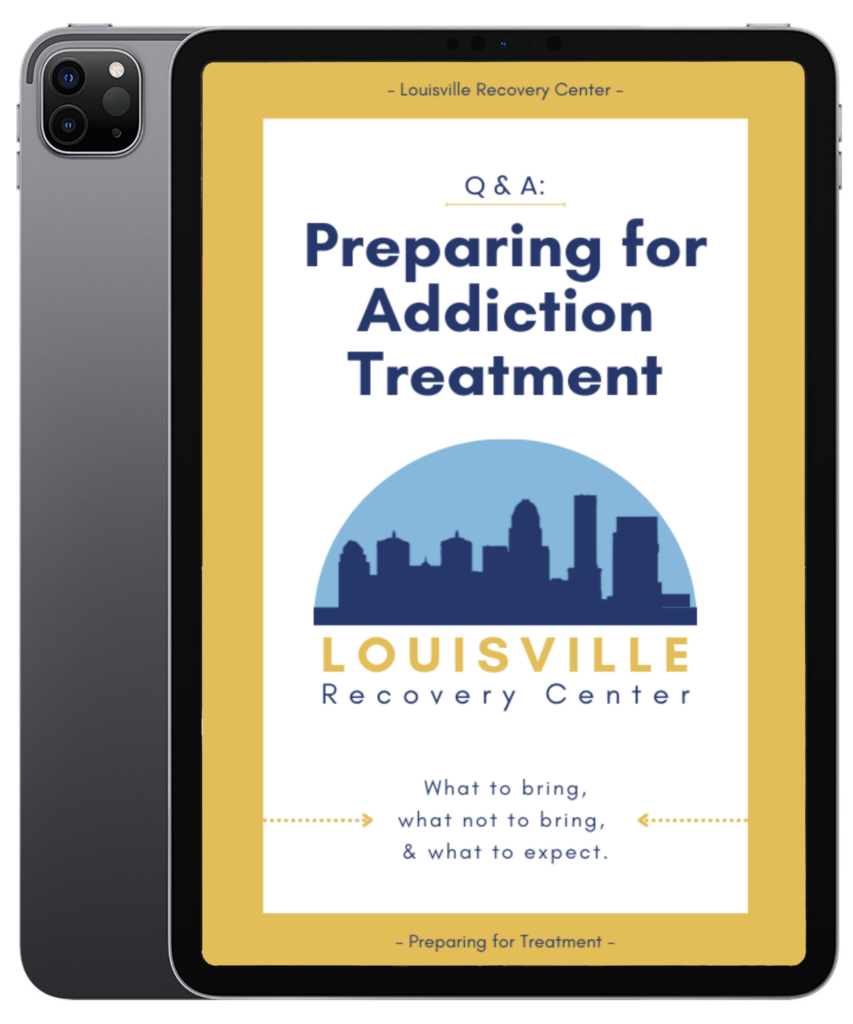Meditation For Addiction Recovery
at Louisville Recovery Center
Researchers believe that an approach to meditation referred to as “mindfulness meditation,” which promotes self-awareness, may be effective in treating substance abuse and promoting relapse prevention. This approach seeks to assist individuals in identifying what motivates their cravings and how to better deal with the discomfort they create.
What is Mindfulness Meditation?
Mindfulness meditation is a mental training method that enables you to slow down your thoughts, release your negative thoughts, and calm your mind and body. It combines meditation with mindfulness, a mental state in which you focus exclusively on the present moment so that you may accept and acknowledge your thoughts, feelings, and sensations free of judgment.
Any formal meditation practice is known as mindfulness meditation if it helps us reconnect to the present moment by maintaining our attention. Long periods of uninterrupted silence are possible, as well as brief periods of meditation, ranging from a couple of minutes to an hour.

How do you Practice Mindfulness Meditation?
Start where you are. Even taking two minutes out of every day can make a big difference in our well-being and peace of mind. The objective of mindfulness meditation is not to quiet the mind or to maintain permanent peace.
There is a range of methods to perform mindfulness meditation, which usually consists of deep breathing and awareness of the body and mind. You don’t need candles, essential oils, or mantras to practice mindfulness meditation (unless you enjoy them). You don’t even need to partake in guided meditation, but it can be helpful to consult a professional. All you need is a comfortable seat, three to five minutes of free time, and an open mindset to begin.
Start by focusing on the present moment without judgment. Your focus will inevitably drift away from the breath to other subjects. Don’t fret about it. There is no requirement to eliminate or block your thoughts. When you notice your mind wandering, gently let go of those thoughts and return your attention to the breath. Instead of battling with your thoughts while meditating, practice observing them without reacting. Just sit and pay attention. Maintaining that concentration is all there is to it. Come back to your breath over and over again, without judgment or anticipation.

Fill Out This Quick Form To Download Our FREE Preparing For Treatment eBook eBook
Why is Mindfulness Meditation Important?
If you struggle with substance use disorder (drug addiction or alcohol addiction), the first step is to find the underlying emotional cause. You must understand why you started using that substance. The answer could be pessimism, anxiety, depression, or fear, for example. It’s likely that these unpleasant feelings come from a mind that wants more. We think that if we had more money or a better job, we would be happier.
Sometimes, we believe that if we acquired more popularity or more power, we would be happier. That’s not the case because we’re subjecting ourselves to pain by wanting things we can’t easily have. There are situations in which we hold onto things that are long gone, and that causes us to feel regret and longing. When we think about what might have been or should have been, unhealthy emotions take over. Jealousy, depression, and anger are all possible consequences.
By practicing mindfulness, we can discover what we want in life. Instead of letting those negative attachments consume us, we can let them go. We can then realize our suffering and put an end to it. Through being mindful, we can learn about our resistance.

Benefits of Meditation in Louisville
- Reduces Stress – A study has shown that mindfulness meditation can promote stress reduction in daily life. It has also been shown to be helpful in treating a variety of mental health issues and physical ailments, including anxiety, depression, and chronic pain.
- Boost in Immunity – Studies also show that mindfulness practices can improve your body’s resistance to disease. In one study, the impact of both mindfulness and exercise on immune system function was evaluated. The people who had participated in an eight-week mindfulness course gained more immune function than those in the exercise group.
- Increases Heart Health – According to research, mindfulness may be beneficial for your heart. Heart disease is one of the leading causes of death in the United States, and this study examined whether mindfulness meditation would alter cardiovascular outcomes. Those who completed the mindfulness meditation program had significantly lower heart rates and scored higher on a cardiovascular exam than those who received traditional treatment for heart disease.
- Promotes Sleep – Researchers have discovered that practicing mindfulness meditation may improve sleep and alleviate certain sleep issues. A 2019 study found that mindfulness meditation dramatically improved sleep quality.
How Does Meditation Aid Addiction Recovery?
Meditation helps those struggling with drug use for various reasons. When used in tandem with other programs offered at our treatment centers, mindful meditation can improve a patient’s self-control, self-esteem, and wellness and can even create a sense of inner peace. All of these benefits are essential on the road to recovery from drug and alcohol abuse.
Mindfulness Meditation as Addiction Treatment at Louisville Recovery Center
It may seem difficult to begin a mindfulness meditation practice, but even a small amount of time daily can be beneficial. Remember that being present for a few minutes can offer significant rewards. Even if you don’t do it every day, you can return to it when you need it. If you or a loved one is interested in learning more about mindfulness meditation or any of the other holistic exercises we practice at Louisville Recovery Center, contact us today. Our qualified specialists are available and ready to help you. You no longer have to struggle alone.
